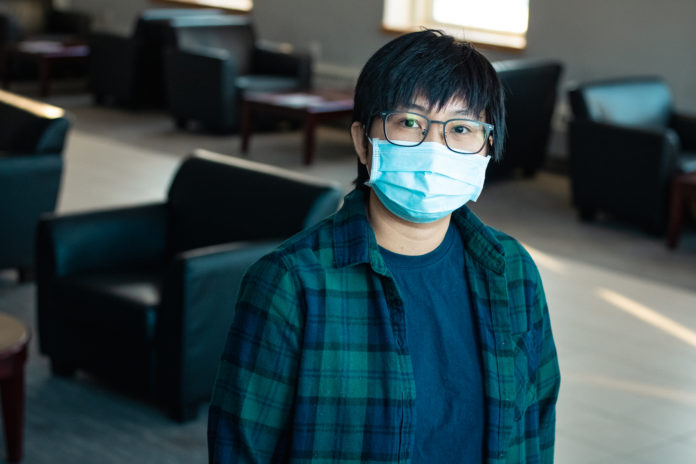
With the 2024-25 school year underway and the COVID-19 pandemic almost two years behind us, there are now vast differences between student’s schooling experiences.
Many fourth-year students ended high school in lockdown or with some kind of hybrid layout and started university with restrictions. Many incoming first-years have never known high school before COVID-19 lockdowns, yet are starting post-secondary with no precautions.
Some professors are starting to notice a difference between older and younger students.
Sarah Vannier, a psychology professor at STU, noted how her first-year students during the previous school year were remarkably more chatty than her third-year class.
“I think speaking in class is a skill you have to develop,” she said. “And once you get out of the habit, it can feel a little uncomfortable … if in your first year, you didn’t get used to people sharing ideas that are sometimes wrong or that other people disagree with, it’s kind of hard to step into that as you’re going later into university.”
Lucien van Liempt, a first-year student, was in grade 11 when the first lockdown occurred. Having been skipping his in-person classes due to struggles with his mental health, van Liempt found that being in quarantine away from school benefited him and encouraged him to “be a little bolder, a little braver.”
“It was a nice little break from my own mind,” he said
Myia Rector, a fourth-year student, had a much different lockdown experience.
Rector expressed how lockdown was a confusing time for her and fellow high school seniors worrying about the fate of their graduation ceremonies in a small town.
“It was kind of difficult trying to figure out what we were going to do and we didn’t know if we were going to follow along with what the bigger schools were doing, or if we were just going to not do one.”
As well, being in classes with both first and fourth-year students, she has noticed a difference in how her peers socialize.
“I find [first-year students] are a lot more social, like they’ll just talk to each other and it’s great … compared to the fourth year classes, it’s kind of like we’re awkward almost. We don’t really know what to say, how to talk to each other,” Rector said.
As for why this phenomenon has developed, Vannier explained that while the pandemic quarantining and distancing measures are unlikely to be the sole cause considering the amount of time that has passed, she believes it could be a factor.
“I was chatting with a fifth-year student yesterday who started her degree completely online and she did mention a little bit of feeling less connected to campus because she missed those first-year opportunities of orientation and being in a classroom with her peers and all those types of things,” she said.
One of the advantages of the small STU campus commonly advertised to prospective students, is the ability to connect with your professors and peers as Vannier said. However, she noted the impact that feeling disconnected can have on students.
“[Maybe if] you feel a bit disconnected, it is harder to kind of share those ideas in class and maybe it’s harder to know your profs too.”
When asked what she believed the reason to be for her first-year peers being more sociable, Rector said, “I feel like they learned to adapt to the COVID world in high school.”
Likewise, van Liempt noted of his peers post-lockdown, “I feel like they were kind of rejuvenated, almost … because I think that this has shown them that they can do the work, because they’re more in control than they thought they were.”
In any case, Vannier, van Liempt and Rector all felt as though social life on campus is starting to improve.
“Campus does feel more alive and vibrant [than before],” said Vannier.
